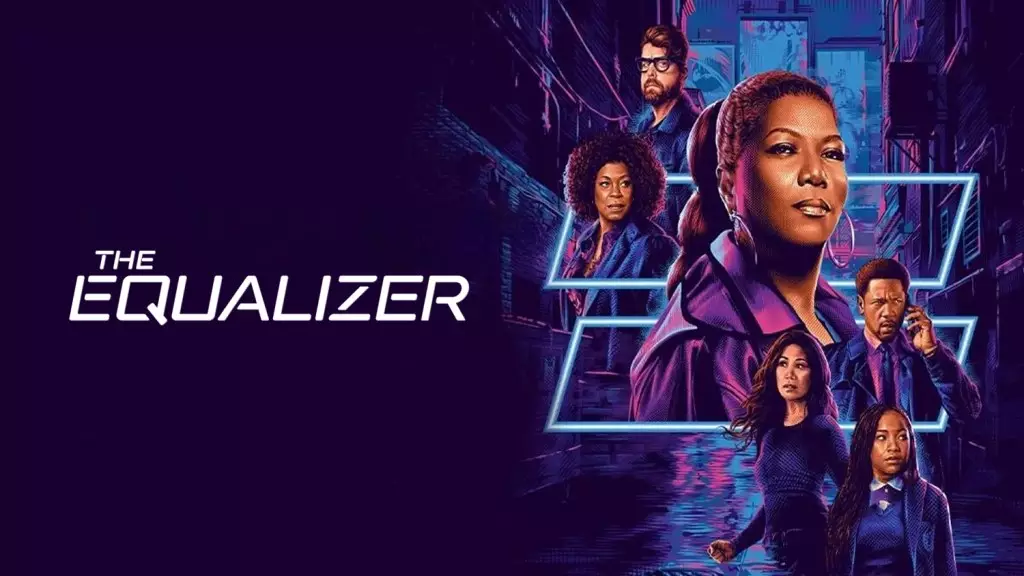In the world of television, few series have dared to break the mold quite like *The Equalizer*, which starred the indomitable Queen Latifah as Robyn McCall. With its bold premise and riveting storytelling, this crime drama became a beacon of representation, standing as the fourth primetime network drama to be headlined by a Black woman. Launching behind the Super Bowl in 2021—a coveted time slot that catapulted its visibility—*The Equalizer* struck a chord with audiences, becoming a runaway success. Its portrayal of a fierce, enigmatic protagonist with an overflowing skill set derived from her history as a CIA operative resonated deeply across demographics, unearthing complex issues while challenging established norms.
But the show’s flickering flame—once a blazing beacon of hope and allure—has recently dimmed, culminating in CBS’s decision to cancel the series and leaving many fans pondering the fragile nature of television success. The series drew significant viewership, but over time, like many shows before it, the ratings began to erode. This decline became particularly evident as television networks braced the harsh realities of a changing entertainment landscape, where financial considerations often outweigh artistic merit.
The Harsh Realities of Television Economics
In an atmosphere where budgets are scrutinized more than ever, any show must not only captivate viewers but also remain economically viable. Rumors of potential renewal circulated, with the production team reportedly willing to trim its budget to align with CBS’s expectations. However, mere financial adjustments rarely suffice in the high-stakes world of television renewals. The decision to cancel was not merely a reflection of *The Equalizer*’s waning viewership; it epitomized an exhausting year for numerous series on CBS that found themselves entangled in similar webs of uncertainty and turmoil.
The competition is fierce, and CBS’s recent cancellations paint a grim picture of what it means to fight for renewal. Notably, out of six scripted series hanging precariously in limbo, only one—as if by a stroke of luck—was granted a reprieve. It raises questions about how networks prioritize certain genres and formats over others, often sidelining compelling narratives and diverse representation in favor of quantities that promise higher ratings.
Cultural Impact and Artist Intent
Beyond the statistics and budgets, *The Equalizer* made waves by delivering culturally significant narratives. By showcasing a character who exudes strength while simultaneously representing vulnerability, it captured audiences’ hearts. Queen Latifah’s portrayal of Robyn McCall wasn’t just a role; it represented a cultural shift that allowed for underrepresented voices, themes, and stories to occupy center stage. Additionally, the cast—Lorraine Toussaint, Tory Kittles, and others—brought immense talent and depth, reflecting a compelling ensemble that graced our screens each week.
However, with the cancellation, questions arise about what we stand to lose in the larger cultural fabric of the medium. As anchors of representation are cut, the television landscape risks reverting to a monolithic display lacking the rich tapestries of diversity. The storyline crafted in *The Equalizer* wasn’t merely entertaining; it served a purpose, offering viewers narratives they seldom see anywhere else.
Preparing for the Uncertain Future
With the conclusion of Season 5 now a definitive series finale, fans are left in a state of reflection over what could have been. The creative team cleverly laid groundwork for this very possibility, crafting the last episode in such a way as to wrap up essential storylines. Yet, creative foresight doesn’t negate the disappointment of unfulfilled potential. The cancellation has evoked a mix of sadness, nostalgia, and frustration among fans and critics alike who write what could have been explored further.
In a broader context, *The Equalizer* joins the ranks of various shows that have documented the ever-shifting landscape of television, where content is king, but only when it resonates with audience metrics. The loss of such a noteworthy series prompts contemporary discussions surrounding diversity, artistic integrity, and the challenges facing creators.
It’s worth pondering whether the network systems can balance fiscal responsibility with the diverse storytelling that modern viewers yearn for. As we bid farewell to this compelling narrative woven with threads of equity and resilience, one can’t help but stand ready with eager anticipation for the new stories that will emerge next. But will they shine as brightly as the legacy of Robyn McCall? Only time will tell.
